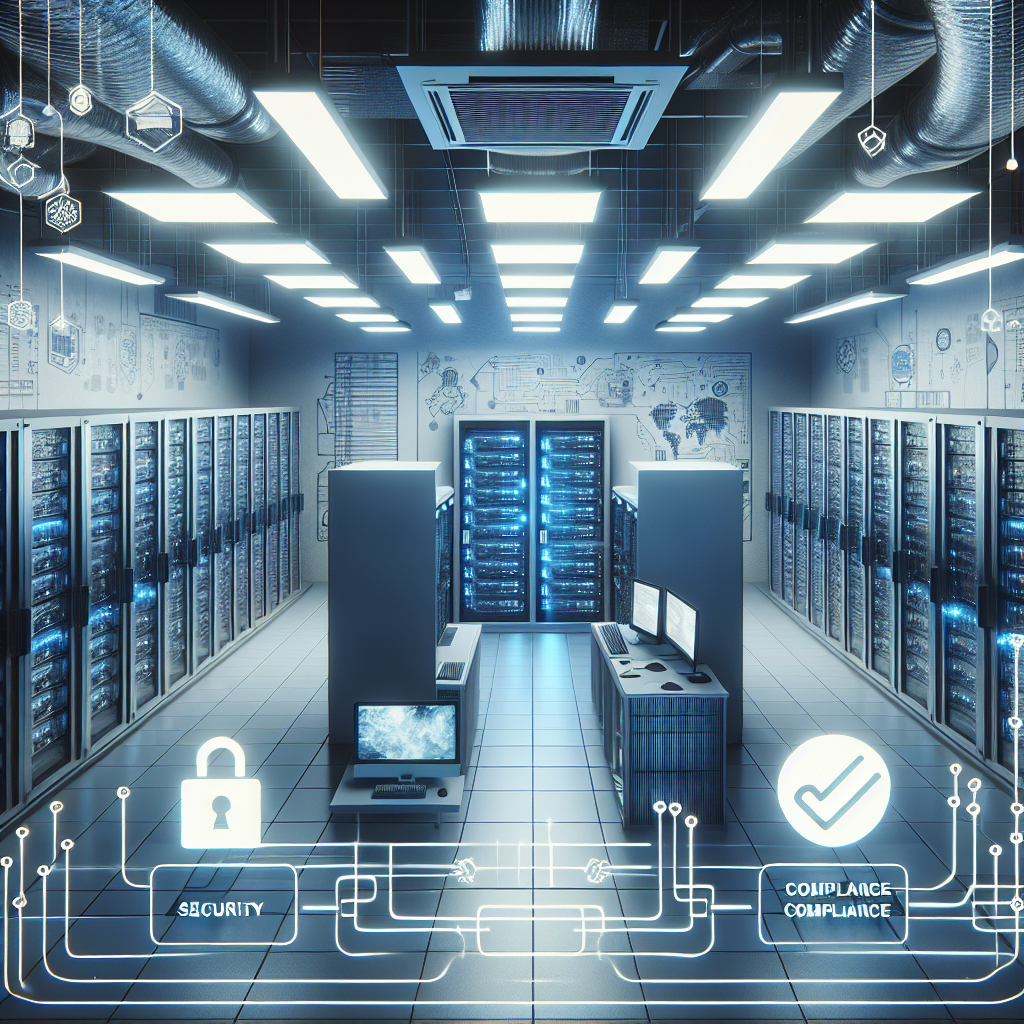Data centers play a crucial role in the operations of businesses and organizations, serving as the central hub for storing and processing data. As such, it is essential to ensure that data center servicing is done in a way that maintains security and compliance with relevant regulations.
When it comes to maintaining security and compliance in a data center, there are several key considerations that must be taken into account. Here are some important factors to keep in mind:
1. Physical Security: One of the most critical aspects of data center servicing is physical security. This includes measures such as access control systems, surveillance cameras, and secure entry points to prevent unauthorized access to the facility. It is essential to have strict protocols in place to ensure that only authorized personnel are allowed entry into the data center.
2. Data Encryption: Data encryption is a crucial component of maintaining security in a data center. By encrypting data at rest and in transit, businesses can protect sensitive information from unauthorized access. It is important to implement strong encryption algorithms and regularly update encryption keys to ensure data remains secure.
3. Compliance with Regulations: Data centers must comply with various regulations and standards, such as the General Data Protection Regulation (GDPR) and the Health Insurance Portability and Accountability Act (HIPAA). It is essential to stay informed about the latest regulatory requirements and ensure that data center servicing practices adhere to these standards to avoid legal repercussions.
4. Regular Audits and Assessments: Regular audits and assessments of the data center infrastructure are essential to identify potential security vulnerabilities and ensure compliance with regulations. Conducting regular security assessments and penetration testing can help identify weaknesses in the data center’s security posture and address them before they are exploited by malicious actors.
5. Disaster Recovery Planning: Data centers must have robust disaster recovery and business continuity plans in place to ensure that data can be recovered in the event of a natural disaster, cyberattack, or other unforeseen event. Regularly testing these plans and updating them as needed is essential to ensure that data remains secure and accessible at all times.
In conclusion, maintaining security and compliance in a data center is essential for protecting sensitive information and ensuring the smooth operation of business operations. By implementing robust physical security measures, data encryption protocols, and compliance with regulations, businesses can minimize the risk of data breaches and maintain the trust of their customers. Regular audits and assessments, along with disaster recovery planning, are also crucial components of data center servicing that should not be overlooked. By prioritizing these key considerations, businesses can ensure that their data center remains secure and compliant with regulatory requirements.


Leave a Reply